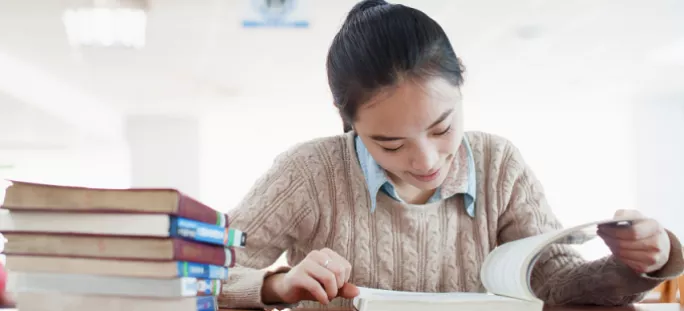Give poorest pupils vouchers to pay for private tuition, report says
Low-income families should get vouchers for private tuition to help them catch up with wealthier classmates, a think tank said today.
The Sutton Trust has found 23 per cent of secondary school pupils nationally and 37 per cent in London received private tuition in 2014, according to a poll of 2,700 pupils.
Previous research has found that even parents who are already paying for private education are willing to fork out more for private tutors - 27 per cent of children at private school have extra tuition compared to 14 per cent in state schools.
Conor Ryan, director of research for the Sutton Trust, said: “While many schools offer a range of sporting and other activities outside regular school hours, there is still a substantial advantage available to those who can afford it.
“If we are serious about improving social mobility we must narrow the gap in educational opportunities outside of school as well as within the classroom. Offering low-income families vouchers to spend on extra-curricular activities or private tuition would be a step towards this.”
The trust is calling for the government to introduce a means-tested voucher system as part of the pupil premium through which lower income families could purchase additional educational support.
But the National Association of Head Teachers does not support the idea.
Russell Hobby, general secretary, said: “The money could be better spent helping schools afford better teachers and provide better teaching, rather than expecting those low-income families to find additional time and putting pressure on the pupils.
“After all we set aside a large period of time during the day for pupils to study and I don’t think this idea gets to the root of the problem. The issue here is quality of teaching, if there is money to spare then we should make sure it goes on the best teaching. Then there would be no need to spend extra time studying. Kids should be having fun in the evenings rather than constantly studying.”
In its report Extra-curricular Inequality, the trust also analyses data from the Office for National Statistics to discover the extent of the gap between children.
It found 35 per cent of parents in the richest fifth of households paid for their child to have some kind of out-of-school tuition, either academic, social or sporting compared to 9 per cent of those in the lowest fifth, earning less than £14,000 a year.
The trust also asked Ipsos MORI to poll 309 parents on what types of non-academic out-of-school activities their school-age children did.
It found that 76 per cent of parents involved children in some form of social activity. The most popular was taking part in sport, which more than half of children did. Scouts and Guides came next with 16 per cent of parents saying at least one of their children did this.
Again professional parents were more likely (84 per cent) to involve their children in such activities than parents working in manual occupations (69 per cent).
And a fifth of professional parents, the study found, spent more than £500 per child per year on these extra-curricular activities.
While it may be on the rise, the extent of private tutoring in the UK is below international averages.
More than 70 per cent of students in Shanghai and Japan have after-school lessons in mathematics, whether at home, school or elsewhere, according to the Performance in International Student Assessment (Pisa) report.
In the UK this drops to 42 per cent, according to Pisa, the study of how countries education systems compare published by the Organisation for Economic Co-operation and Development.
The report also found that the average 15-year-old in the UK spent 24 minutes a week working with a personal tutor and 18 minutes at commercially-run after-school classes paid for by parents. This compared to an OECD average of 42 minutes with a personal tutor and 36 minutes in classes. In Shanghai, teenagers spent an average of 72 minutes with a personal tutor and 126 minutes in classes a week.
A DfE spokesperson said: “Our reforms to the curriculum and qualifications are closing the gap between the rich and poor and allowing thousands more children to go to good state schools.
“By April 2015 we will have spent £6.25 billion to support disadvantaged children through the pupil premium.
“Many schools will already be using this to pay for extra tuition and after-school activities to improve disadvantaged pupils’ academic progress. It is right that teachers decide how to spend the money to best meet the needs of their pupils.”
Related stories:
Pupil premium cash can pay for 11-plus preparation 18 May 2012
My life as a private tutor 26 August 2011
Private tuition firm to provide maths and English at state secondaries 29 July 2011
Keep reading for just £1 per month
You've reached your limit of free articles this month. Subscribe for £1 per month for three months and get:
- Unlimited access to all Tes magazine content
- Exclusive subscriber-only stories
- Award-winning email newsletters




